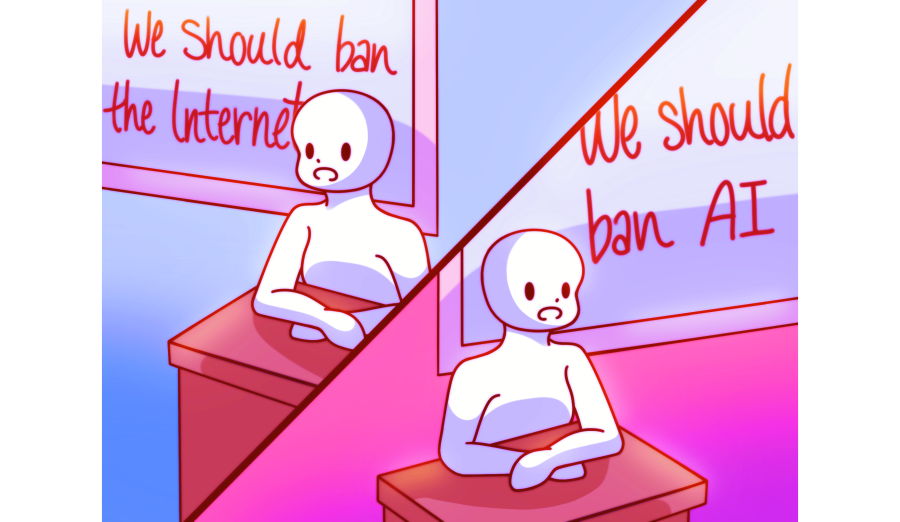A new innovation in artificial intelligence, OpenAI’s free-to-use ChatGPT assistant, is a language model that can respond to questions with factually-correct information, write short stories or even code computer programs, all according to a user-specified prompt.
However, ChatGPT has presented new challenges to educators. Now, students can use machine learning to generate essays comparable in quality to human-written ones. While ChatGPT makes academic honesty more difficult to track, The Campanile thinks artificial intelligence, if used properly, can enhance education by providing useful research and encouraging a focus on real, purposeful learning for students.
In response to potential academic dishonesty, some schools have blocked ChatGPT on campus wifi; however, restricting access to any technology is a naïve solution. This new wave of artificially intelligent assistants resembles the initial rise of the internet: access to limitless information also presented problems for educators regarding searching for homework solutions and receiving unauthorized aid on tests.
Clearly, it does not make sense to ban the internet in schools and deprive students of all the learning resources available on the web. But that’s what many school officials tried to do in the early ‘90s as internet access became more widespread. Similarly, banning ChatGPT is an inadequate solution. Not only could students still use ChatGPT outside of school, but a ban would also limit productive use of OpenAI’s tools for inspiration or research.
Instead, PAUSD should revise its academic integrity code to explicitly prohibit using AI tools for completing written assignments. The district needs to emphasize that using ChatGPT to gain an unfair advantage is an honesty violation on par with cheating or plagiarism, and it should be treated with the same consequences.
Additionally, since ChatGPT especially excels at completing busy work, teachers should rebalance their curriculum for assignments that engage students and promote real, useful learning. And more essays and tests could be given using pen and paper to make it more difficult to access ChatGPT.
And students should understand that using ChatGPT to do work for them will limit their skills in writing, analysis and critical thinking.
Despite these risks, though, The Campanile thinks ChatGPT and similar AI tools have enormous potential to improve education. The biggest advantage ChatGPT has over traditional search engines is its ability to accurately interpret the meaning of a question rather than extracting and matching keywords. As a result, ChatGPT allows students to efficiently search its vast trove of information to answer a question or find additional sources, greatly increasing the productivity of research.
Furthermore, ChatGPT’s deep understanding of language gives it novel uses. For instance, ChatGPT can analyze the meaning of an article and generate a summary, saving time for students who need to scan multiple sources to see which ones are relevant to a particular topic. Also, if part of ChatGPT’s response is confusing or incomplete, a student can prompt the model for an explanation instead of entering another long search query into a search engine.
Ultimately, ChatGPT’s impact on students and schools raises questions about the efficacy of the educational system. While the district should update its honor code to encourage academic honesty even with access to OpenAI, it is critical for teachers to replace busy work assignments that could easily be completed using ChatGPT with ones that challenge students to develop critical thinking skills. One thing is for certain: AI is the future, and we believe education needs to adapt to reflect that.

